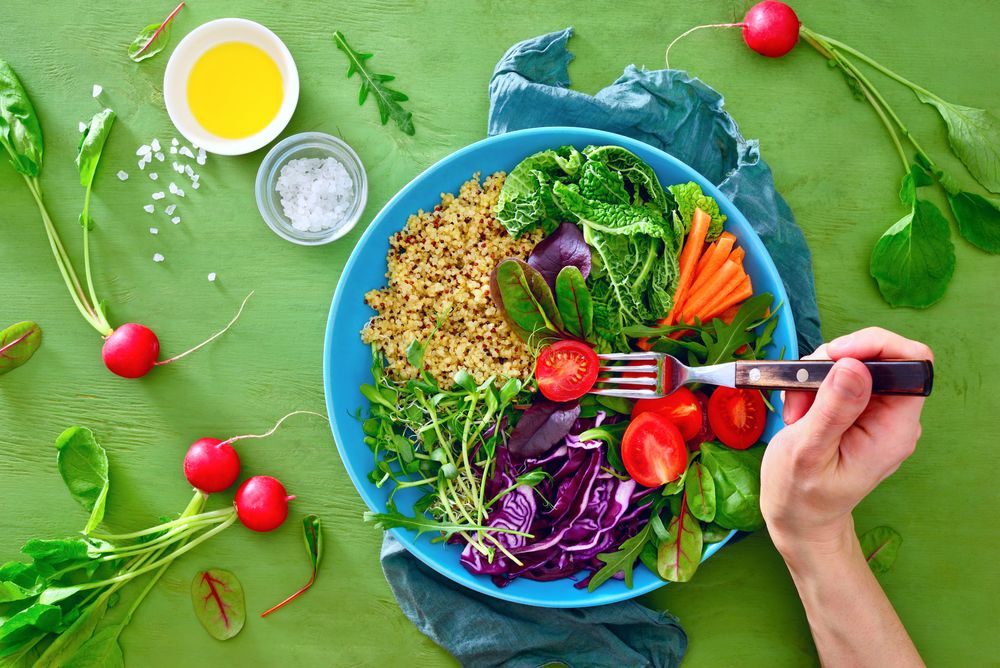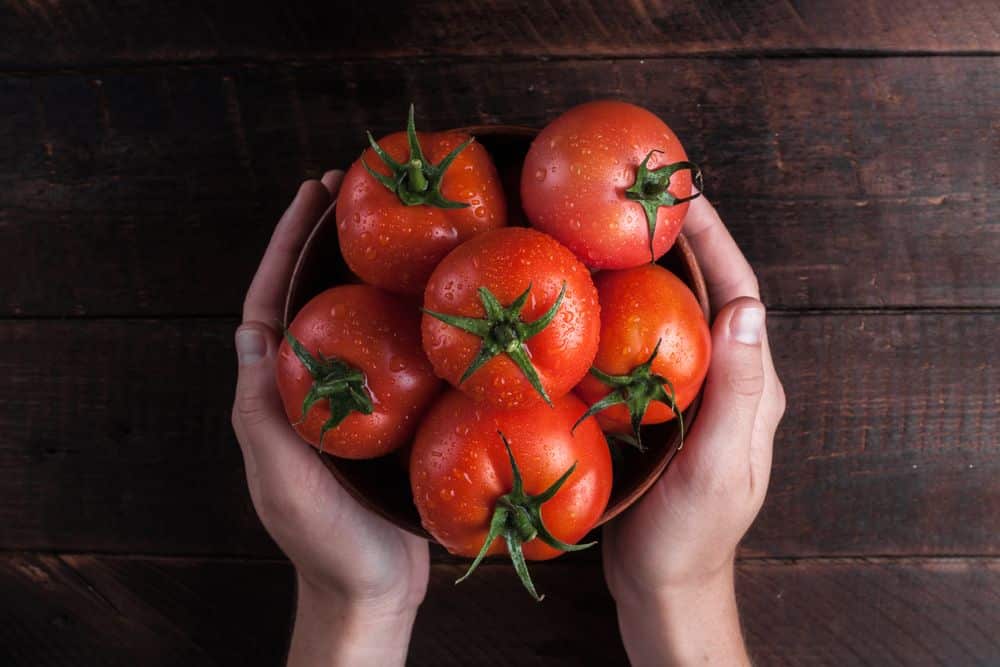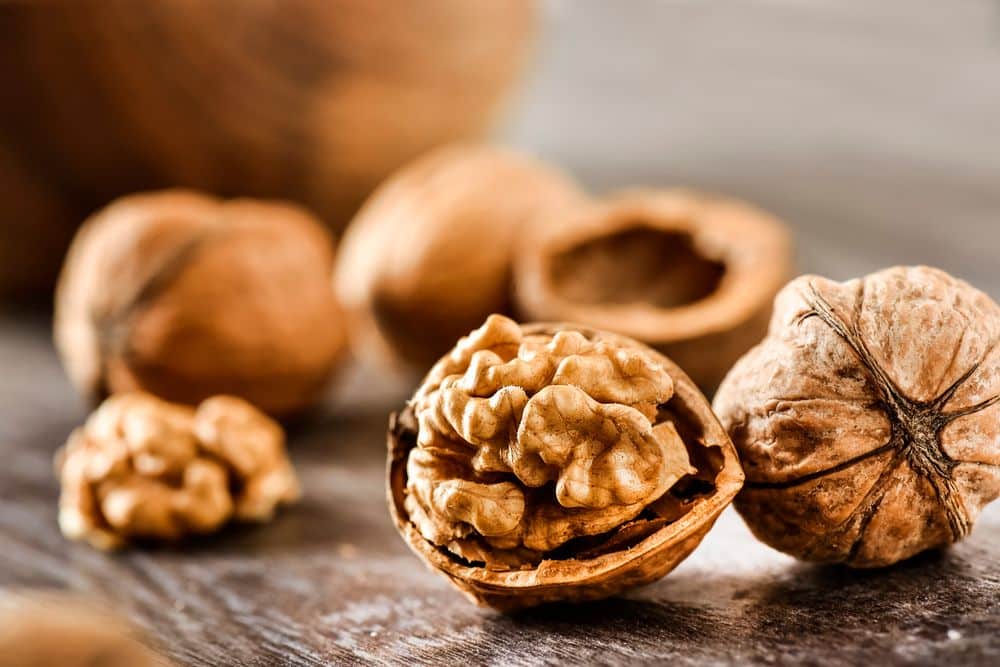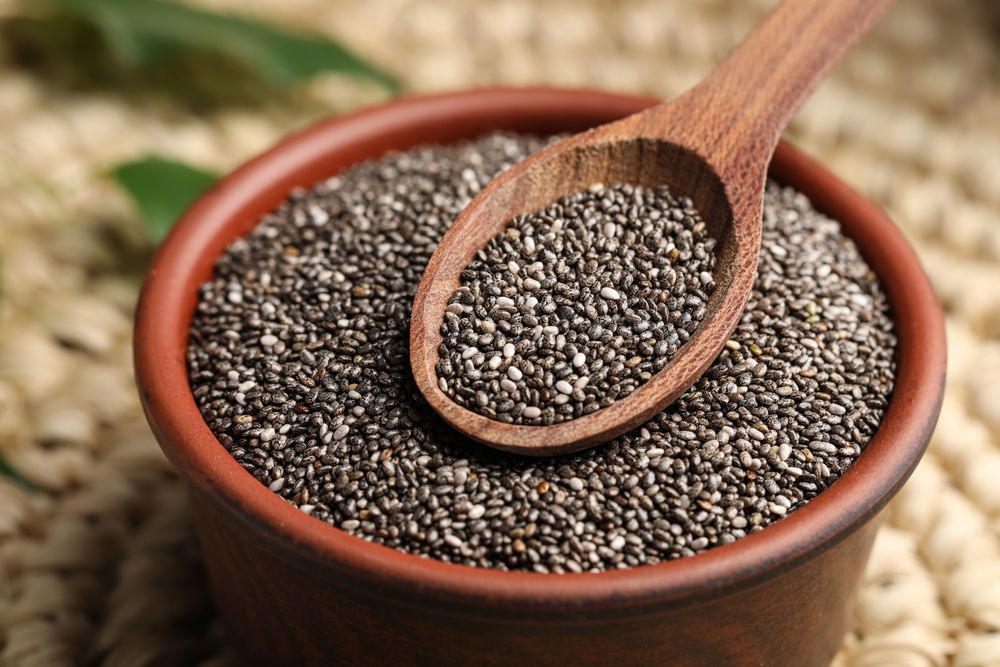Inflammation is a significant cause of some degenerative diseases.
For example, inflammation can cause cardiovascular diseases, cancer, arthritis, dementia, Parkinson’s disease among many others. On one hand, there are inflammatory foods that may cause inflammation.
While on the other hand, anti-inflammatory foods can reduce inflammation. Hence, knowing anti-inflammatory foods and their effects is vital in the current scenario.
What Causes Inflammation?
Our immune system reacts when our body recognises anything foreign. It can be a microbe, chemical or plant pollen. It often triggers the process of inflammation.
However, there are times when inflation persists throughout the day. The scary part is when inflammation occurs without these agents. Therefore, we can call it the most harmful stage of inflammation.
Heart ailments, diabetes, cancer, depression, Alzheimer’s, and arthritis can result from chronic inflammation.
Foods that Cause Inflammation:
In our fast-paced lives, we more often than not reach out for convenience foods, which are highly processed; tinned, canned, packaged products are heavily preserved, rich in either excess salt, sugar or fat.
These are natural inflammatory foods that will negatively impact the body, resulting in degenerative diseases.
- High-sugar foods, refined cereals like bread, pastries, chocolates, sweets, and savoury confectionery increase inflammation. Hence, it would help if you did not consume them regularly.
- Excessive alcohol intake damages the liver and causes inflammation in the body.
- Highly processed red meat is high in cholesterol and saturated fats. Hence, it causes inflammation.
- High Trans fat food items like burgers, pizza, and fried food cause inflammation.
- Artificial food additives in highly processed sauces, mayonnaise, cheese, butter, etc., also cause inflammation.
- Food allergen; if you are allergic to any food, you should altogether avoid it. If you are allergic, be it lactose, gluten, etc., avoid such food items as they are triggers to inflammation.
How to Fight Inflammation?
Choose Anti-inflammatory Diet:
You should follow an overall healthy diet to combat the risk of inflammation.
Confused about what an anti-inflammatory diet is? Opt for a diet containing fruits, vegetables, whole grains, nuts, healthy oils and fish. In addition, try to eat more natural food and avoid processed food.
An anti-inflammatory diet will improve your physical health. In addition, it improves mood and overall quality of life.
Having Anti-inflammatory Foods:
Most people think that medication is the most powerful tool to fight inflammation. However, a lot of research disagrees with this.
As per research, food components or beverages may have anti-inflammatory effects. Therefore, by choosing the right anti-inflammatory foods, you can reduce the risk of illness.
Avoiding Foods that Cause Inflammation
Another way to avoid inflammation is avoiding foods that may cause inflammation. A few of these foods include:
- Refined carbohydrates like pastries and white bread
- Soda and other sweetened beverages
- Processed meat and red meat
- Fried food or foods like french fries, burgers, etc.
Inflammatory foods are also responsible for weight gain. And weight gain itself brings a risk of inflammation with it. In addition, some of these foods can increase the risk of chronic diseases.
These include heart diseases, diabetes or even cancer. In general, these foods are generally bad for our health. So, you should avoid having these foods.
The Best Anti Inflammatory Foods
Anti-inflammatory foods help reduce inflammation in our bodies. Therefore, they protect us against various diseases.
In addition, these foods are rich in antioxidants, essential fats, carotenoids and flavonoids. Therefore, anti-inflammatory foods are also helpful for the optimum functioning of the brain and the body.
Let us look at the best anti-inflammatory foods.
1. Tomato
It is originally a fruit but used as a vegetable in most Indian households. Tomatoes are widely available throughout the year. Its scientific name is Solanum Lycopersicum.
Tomato is an underrated fruit. It is rich in lycopene, which is a potent antioxidant. As a result, it helps reduce inflammation in the body. In addition, tomatoes are rich in vitamins like vitamin A & C. These vitamins act as antioxidants in the body and help reduce inflammation.
Tomatoes have phenolic compounds like phenolic acids and flavonoids. In addition, they contain carotenoids like alpha and beta carotene and glycoalkaloids like tomatine. These bioactive compounds remain intact even after cooking. All these nutrients together make tomatoes a power-packed food item to reduce inflammation.
Studies show that tomato intake is inversely related to cancer, cardiovascular diseases, ageing, and many other degenerative diseases.
Nutritional Value of Tomato (per 100gm)
- Energy – 10kcals
- Protein – 0.9gm
- Fat – 0.02gm
- Carbohydrates – 3.9gm
- Fibre – 1.2gm
#1 Tomato Salad Recipe (1 Serving)
Ingredients:
- Tomato – 50 grams
- Lemon – ½ piece
- Salt – a pinch
- Black pepper – ½ tsp
Method:
- Wash the tomatoes thoroughly and core out the portion where the fruit is attached to the stem.
- Slice tomatoes evenly.
- Arrange them on a salad plate, squeeze lemon, season with a dash of salt and pepper and consume.
#2 Tomato Juice Recipe (1 Glass)
Ingredients:
- Tomato – 50gms
- Brown Sugar/Jaggery Powder – ¼ tbsp (Optional)
- Chilly – 1 piece (Optional)
Method:
- Wash the tomatoes thoroughly and blend them in a blender with brown sugar and chilly.
- Strain the mixture using a muslin cloth or a strainer.
- Pour it into a glass and consume.
#3 Tomato Soup (2 Servings)
Ingredients:
- Tomato – 100 grams
- Onion – 50 grams
- Cow ghee – 5 grams
- Salt – ½ tsp
- Black pepper – 1 tsp
- Water – 1 cup
Method:
- Sauté diced tomatoes, onion in ghee in a saucepan.
- Add water and let it simmer for 10 minutes.
- Blend in a blender, strain it.
- Pour in a bowl, add some seasoning and consume.
2. Broccoli
It is a widely available vegetable with a high amount of nutritional benefits. The scientific name of broccoli is Brassica oleracea var. italic.
Broccoli is rich in ascorbic acid or vitamin C, vitamin K, fibre, and folate. It is a rich source of antioxidants like flavonoids, carotenoids, kaempferol and quercetin. Apart from their anti-inflammatory properties, kaempferol and quercetin even improve mental health. Studies also prove that broccoli helps fight degenerative diseases like cancer, heart problems, etc.
Nutritional Value of Broccoli (per 100 grams)
- Energy: 34 kcals
- Protein: 2.8gms
- Fat: 0.4gms
- Carbohydrates: 7.2gms
- Fibre: 3.3gms
Broccoli is a versatile vegetable, and you can consume it in many ways.
#1 Tossed Broccoli Recipe (2 servings)
Ingredients:
- Broccoli – 100 grams
- Salt – ½ tsp
- Black pepper – 1 tsp
- Olive oil – 1 tbsp
Method:
- Add chopped broccoli florets, olive oil in a pan, and sauté for a few minutes.
- Add seasoning, and it’s ready.
#2 Baked Broccoli (2 servings)
Ingredients:
- Broccoli – 100 grams
- Salt – ½ tsp
- Black pepper – 1 tsp
- Butter – for greasing
Method:
- Preheat the oven to 180 degrees celsius.
- Add chopped broccoli florets on a greased baking tray, and bake for 15 minutes.
- Add seasoning, and it’s ready.
3. Walnut
If you look at the inner edible matter of the walnut, you will observe that it replicates the human brain. So walnuts are as beneficial for us as for the brain.
Walnuts contain good fat known as PUFA (polyunsaturated fatty acid). These are healthier than saturated fats.
In addition, walnuts are an excellent source of alpha-linolenic acid and DHA. It is essential for the functioning of the brain and has anti-inflammatory properties. Furthermore, it keeps the blood vessels healthy and reduces cardiac inflammation. Hence, walnuts keep our mind, body and heart-healthy.
Regular intake of walnuts has shown positive results in people with inflammation. Thus, walnuts act as a neuroprotective agent and protect the brain against inflammation.
Word of caution:
Walnuts are high in calories. So, ensure that you eat them in moderation. You can eat walnuts regularly in small quantities.
Nutritional Value of Walnuts (per 100 grams)
- Energy: 654 kcals
- Protein: 15.23 gms
- Fats: 65.21grams
- Carbohydrates: 13.71 gms
- Fibre: 6.7 gms
4. Kale
Kale is a widely available vegetable. Its scientific name is Brassica oleracea.
Kale leaves contain a host of anti-inflammatory agents. It protects our body against cellular damage through phytonutrients and antioxidants. In addition, kale is an excellent source of many essential amino acids.
The anti-inflammatory properties of kale depend significantly on how it is processed before consumption.
A simple way to consume kale is by tossing it with vegetables into a salad or grinding it into a smoothie. A kale smoothie acts as a great detoxifying agent and aids in weight loss.
Nutritional Value of Kale (per 100 grams)
- Energy: 263 kcals
- Protein: 2.7gms
- Fats: 1.3 gms
- Carbohydrates: 1.1 gms
- Fibre: 3.3 gms
5. Chia Seeds
Chia seeds have gained popularity as a “weight loss seed” in recent years. Its scientific name is Salvia hispanica L.
High in calories, chia seeds are full of antioxidants and healthy fats. In addition, polyunsaturated fatty acids, omega3 & 6 present in chia seeds, make them an excellent anti-inflammatory food. These seeds are also an excellent source of polyphenols and antioxidants, such as caffeic acid, rosmarinic acid, myricetin, quercetin.
Studies show that chia seeds have anti-thrombotic, anti-cancer properties. Therefore, they are widely accepted by people globally. You can consume them by mixing in a glass of water or even using them as a great topping agent for brownies, muffins, etc.
Nutritional Value of Chia Seeds (per 100 grams)
- Energy: 486 kcals
- Protein: 16.5gms
- Fats: 30.7gms
- Carbohydrates: 42.1gms
- Fibre: 34.4gms
6. Orange
Orange is appealing to the eye. Additionally, it is biologically active at the cellular level. It is a citrus fruit, widely available across the globe. It is a seasonal fruit usually found during winters.
Orange fruit is rich in vitamin C, fibre and antioxidants. Some health experts consider it more potent than some of the medications. An orange’s nutrition profile is highly beneficial biologically. Studies show that orange has many phytochemicals and flavonoids that help curb diabetes, arthritis, depression, and Alzheimer’s.
It would be best if you ate oranges regularly for optimum health benefits. Orange can be consumed whole or as juice by grinding it with the help of a cold-pressed juicer.
Nutritional Value of Oranges (per 100 grams)
- Energy: 47kcals
- Protein: 0.9gms
- Fats: 0.1gms
- Carbohydrates: 11.8gms
- Fibre: 2.4gms
7. Amla
Popularly known as the Indian gooseberry, one amla contains vitamin C equal to 20 oranges. Thus, it is double the recommended dietary intake of an individual.
Read more: 8 Promising Health Benefits of Amla
Vitamin C is a potent antioxidant. It helps reduce inflammation in the body. In addition, it is pocket friendly and easily sourced. Studies suggest that amla fruit has anti-inflammatory properties.
It helps reduce inflammation in the body and keeps the body healthy. People generally consume it by cutting it into small pieces, like a fruit salad. It has a slightly sour nutrient profile.
Nutritional Value of Amla (per 100 grams)
- Energy: 48kcals
- Protein: 1gm
- Fats: 0.5gms
- Carbohydrates: 10gms
- Fibre: 5gms
Spices with Anti Inflammatory Benefits
Apart from fruits and vegetables, the following spices have excellent anti-inflammatory properties. So, you should incorporate them into your daily diet.
- Turmeric with the active ingredient curcumin
- Garlic with the active ingredient allicin
- Cinnamon with the active ingredient eugenol
- Ginger with the active ingredient gingerol
- Black pepper with the active ingredient piperine
- Clove with the active ingredient eugenol
- Cayenne with the active ingredient capsaicin
Benefits of including Anti-Inflammatory Foods in your daily diet
A diet rich in anti-inflammatory foods acts as a shield against degenerative diseases. Therefore, it makes sense to have anti-inflammatory foods with high antioxidants, healthy fats, fibre, etc. These attributes help reduce inflammation, keep the skin looking young and healthy.
A diet rich in anti-inflammatory foods has the following added benefits:
- It helps healthier cognitive functioning of the brain.
- It helps give smoother heart vessels, which do not allow plaque formation (a result of inflammation and a cause of heart attack).
- Helps with healthier joints, as antioxidants reduce inflammation.
- It helps improve symptoms of auto-immune disorders.
- It improves inflammatory conditions like gout, rheumatoid arthritis, etc.
- Reduces the risk of obesity, cancer, diabetes, etc.
- Help give better sensing abilities, as it sharpens the powers of senses.
- It helps get younger-looking skin because anti-inflammatory foods also act as anti-ageing in nature.
Conclusion
Anti-inflammatory foods help in keeping the body fit and healthy. Besides including these healthy anti-inflammatory foods in your daily diet, you should consider other things. Keep in mind to be regular with your daily physical activity daily and maintain a healthy lifestyle. It is a full-proof plan to reduce inflammation in our body and prevent the onset of degenerative diseases in our body.
Frequently Asked Questions (FAQs)
Q. What foods are anti-inflammatory?
A. Foods that curb inflammation in our body by removing foreign particles are called anti-inflammatory foods. Examples are tomato, orange, broccoli, kale and chia seeds.
Q. What is the fastest way to reduce inflammation in the body?
A. The fastest way to reduce inflammation is to incorporate various anti-inflammatory foods into your diet.
Q. What are the ten most inflammatory foods?
A. Pastries, pizzas, mayonnaise, cheese, vegetable oils, fried foods, beef, pork, high trans fatty acids, and alcohol.
Q. Are eggs anti-inflammatory?
A. No. Eggs don’t have anti-inflammatory properties.
Q. What is the most potent anti-inflammatory component?
A. Omega3 fatty acid in nuts and seeds is the most potent anti-inflammatory food.
Q. What are the five classic signs of inflammation?
A. Joint pain, difficulty in breathing, difficulty performing physical activity, redness, swelling and loss of function are the five classic signs of inflammation.
Q. Do bananas cause inflammation?
A. No. Bananas can cause inflammation only if you are allergic to them.
Q. Is chicken an inflammatory food?
A. The way chicken is cooked makes it inflammatory or not. For example, roasted, grilled chicken is incendiary compared to stewed or chicken cooked in a pressure cooker.
Q. What are the worst foods for inflammation?
A. High fatty and sugar foods, alcohol, highly processed foods are the worst foods for inflammation.
Q. How can I reduce inflammation?
A. By including anti-inflammatory foods in your diet, avoiding foods that cause inflammation, and following a healthy lifestyle.
Q. What foods reduce inflammation fast?
A. Anti-inflammatory foods that are rich in antioxidants are the best food for inflammation.
Q. What can I drink to reduce inflammation?
A. You can drink kale juice, orange juice or chia seeds smoothie to reduce inflammation. In addition, tomato juice is also a good option.
Q. What’s the most potent natural anti-inflammatory food?
A. Fruits and vegetables like tomato, kale, orange, chia seeds are some of the most potent anti-inflammatory foods.
Q. What kills inflammation in the body?
A. Primarily, antioxidants kill inflammation in our bodies.
Q. What is the most vital anti-inflammatory agent?
A. Curcumin in turmeric is the most potent anti-inflammatory agent.
Q. How do I rid my body of inflammation?
A. Three best ways to get rid of inflammation are avoiding foods that cause inflammation. Additionally, one has to eat anti-inflammatory foods and follow a healthy lifestyle.










